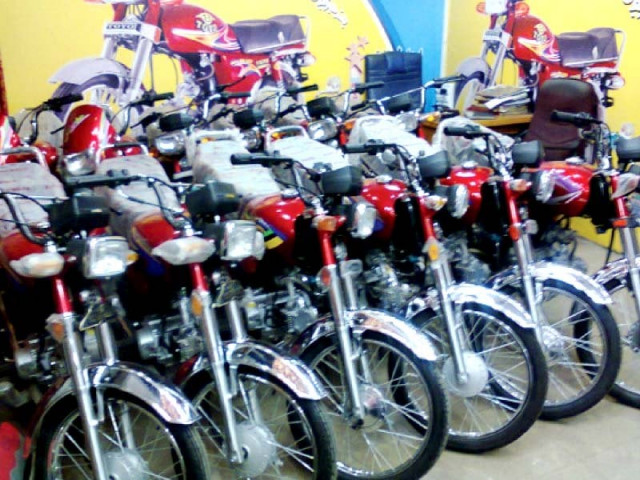Motorcycle production declines by 34%
521,643 bikes produced this year against 797,346 in the same period last year

The two-wheeler industry of Pakistan is facing the brunt of the recent wave of hyper- inflation in the country and is anticipating a decline in overall sales of motorcycles in this fiscal year.
This prediction has been fuelled by the damage brought on by the recent floods, which displaced around 34 million people and destroyed a large percentage of crops.
“The agriculture economy has always been the mainstay for motorbike sales. Unfortunately, this year, the rural economy is too unstable to support the industry in delivering high sales numbers,” said stakeholders of the motorcycle industry while briefing a group of journalists.
Whether the country is hit with a recession or boom, motorcycles have continued their robust growth starting from around 100,000 bikes in 1999-2000 to 2.6 million bikes in 2021-22. This is the first time, since 2000, that manufacturing is expected to post a steep decline.
“This is partially due to the steep increase seen in the price of three wheelers. Since bikes are purchased and used by low-income consumers, sales might have slowed a bit, had prices remained at previous levels. Given the current hike in prices and stagnant incomes, however, people are finding it difficult to even cover recurring monthly expenses – let alone making new purchases,” they noted.
The data for the production of motorcycles comes mainly from the statistics released by the Pakistan Automotive Manufacturers Association (PAMA). There are, however, a large number of motorbike manufacturers that are not registered with PAMA and their production is recorded by the Pakistan Bureau of Statistics (PBS) which will be released later.
With the exception of three Japanese manufacturers, most of the local bike manufacturers produce the 70cc variant. There has always been a huge difference in the retail price of the 70cc Japanese bike and bikes of similar strength made by local or Chinese manufacturers.
Despite the price differential, the sales of Japanese bikes are almost double the sales of all other brands.
Currently, the market leader – the Japanese 70cc bike – is priced at Rs125,000 and the other 70cc variants are available at Rs80,000 to Rs85,000, respectively.
The statistics available for last year, however, put the total production of motorbikes at 2.6 million units. According to that data, in 2021-22, the market leader produced 1.35 million motorcycles and the remaining (1.25 million units) were sold by all others including two other Japanese brands. These Japanese brands, however, produced motorbikes of 100cc or above power.
“The PAMA statistics for the first five months of this fiscal year provide an accurate picture of the state of the bike industry in Pakistan. In the July- November period of 2022, the motorbike industry (registered with PAMA) produced 521,643 bikes against 797,346 produced during the same period last year. This is a massive decline of 34% in the first five months of this fiscal year,” they underscored.
In addition, a further study of the PAMA statistics reveals that Honda produced 563,268 bikes in the first five months of the last fiscal year. In contrast, this year, production has declined to 435,390 units, marking a decline of over 22%.
Likewise, United Auto Motorcycle produced 136,720 units during July-November 2021. In the first five months of this fiscal year, however, production dropped to 38,957 bikes, a massive decline of over 300%.
The third company is Road Prince Motorcycle which produced 52,289 motorcycles in the first five months of the last fiscal year. The production in the first five months of the current fiscal year has, however, declined to 14,540 units.
The overall production of all other motorcycle producers except Honda, declined by 73%.
The restrictions on the import of components is another reason behind this sharp decline seen in motorcycle sales.
SM Engineering CEO, Ishtiaq Siddiqui said that “While most of the motorcycle parts are now being locally produced, especially for the 70cc models, they are still dependent on raw material which needs to be imported. Therefore, the industry has been severely hit by the current import restrictions imposed.”
“The government must realise that raw material imports are necessary for local production and these restrictions are leading to unemployment in the industry,” he added.
“The import of raw material is a life-line for many industries, including the two-wheeler industry. This mode of transport basically augments the common man’s economy, especially in rural areas,” said Fayzan Idrees, an economist, commenting on the situation.
“The loss of jobs incurred due to these restrictions, compounded further by the destruction caused during the floods, will have a devastating impact on the economy in the days to come,” warned Idrees.



















COMMENTS
Comments are moderated and generally will be posted if they are on-topic and not abusive.
For more information, please see our Comments FAQ